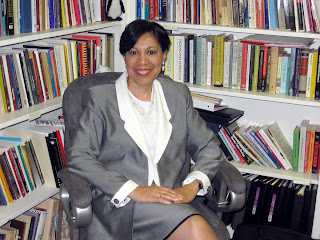 Miguel De La Torre
Miguel De La TorreLast June, I taught a class at the Indonesian Consortium for Religious Studies as a Fulbright scholar on the Gadjah Mada University campus.
The vast majority of my class is Muslim. The class I am leading is on the discipline of postcolonialism; specifically the impact of the Christian missionary venture upon the people.
For the Indonesian people, the Christian missionary came in the form of Dutch Reform. I came to teach; but instead am learning from those whom missionaries seldom bother to hear.
The real question is not if the subaltern can speak; but rather, when she or he does, will anybody listen. I, at least, am trying to listen.
But to do so, I must suspend my religious and Western arrogance and exceptionalism, which assumes I know best. In a very real way, I must carefully hear what the victims of colonialism are saying about me and my cherished Christian beliefs.
As a Southern Baptist, with a Masters of Divinity from Southern Baptist Theological Seminary, I learned that I have been called to spread the good news to the so-called heathen and pagans of the world—defined as anyone who is not a Christian, and in some cases, other Christian groups who don’t believe in the same doctrines and in the same way as I do.
Matthew 28:19 is a foundational text of my and many fellow Baptists’ theological belief system. “Therefore go and make disciples of all nations, baptizing them in the name of the Father and of the Son and of the Holy Spirit, and teaching them to obey everything I have commanded you.”
And yet, as I hear the stories and histories of the colonized, even those who are Christian, I hear how much damage Christian missionaries have done to the culture, to the self-worth of the people, and to the country as a whole.
If I am honest with myself, the worst thing that could ever have happened to the Indonesian people was Christian missionaries washing up on their shores.
How could the Gospel message of peace be so destructive? Whenever the Gospel message of love is wed with the colonial message of conquest, what is produced is a satanic pseudo-religious offspring that justifies the thief of the indigenous people’s resources and labor.
The Christian missionaries who came to Indonesia followed the economic conquerors that arrived to establish the spice trade in 1595.
For evangelical conquest to occur, the indigenous Indonesians had to be constructed as inferior.
The objectification of the indigenous people for their Christianization to occur motivated people like Rudyard Kipling to admonish the colonizer to “Take up the White Man’s burden . . . to serve your captives’ need . . . your new-caught sullen peoples, half devil and half child.”
As I previous said, the worst thing that happen to the Indonesian people (as well as all other colonized people of the world) was the preaching of this type of Christianity, which fused and confused Western Christianity with white supremacy.
Rather than preaching Jesus (forcing of our doctrines and beliefs upon all nations), we should be Jesus (implementing the radical love shown to all through a deep commitment to the justice Jesus exhibited throughout his ministry).
St. Francis of Assisi has often been credited with stating, “Preach the Gospel at all times and when necessary use words.” Whether he said this or not is unimportant.
What is crucial is that evangelism must cease to be an exercise designed to get the “unbeliever” to believe the same doctrines the evangelist believes, and instead becomes sharing the Good News that the one who is made non-person by the colonizer has personhood because they are created in the image of the Creator.
All that has life they possesses worth and dignity. The Good News is that both the dispossessed who have been stripped of humanity and the possessor of oppressive power need to hear a word about liberation and salvation.
Such a liberative word can move them from being the colonized “other” or the colonizer toward the discovery of their redemption, even if that faith identity is based on a different religious or spiritual worldviews than the one bringing the good news.
If indeed a tree is known by its fruits, then they should know we are Christians by our love; not by the love we say we have while contributing to the dispossession and disenfranchisement of many of Earth’s inhabitants.
Maybe the Great Commission of Matthew 28:19 has less to do with getting people to accept the same belief we hold and more to do with sharing – through action, not words – similar acts of love and compassion as Jesus.
Maybe spreading the good news is not doctrinal but rather revealing the message of love, the same way Jesus did: by feeding the hungry, clothing the naked, healing the sick.
Let us who call ourselves disciples of Christ learn to be Jesus, not talk about him.
*This blog first appeared in Ethicsdaily.com.





